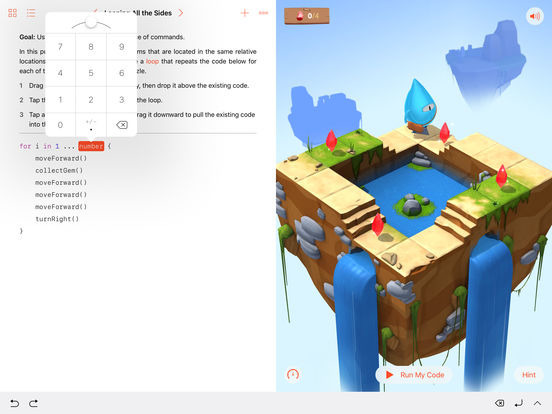

- #APPLE IOS PROGRAMMING LANGUAGE LIST FULL#
- #APPLE IOS PROGRAMMING LANGUAGE LIST ANDROID#
- #APPLE IOS PROGRAMMING LANGUAGE LIST CODE#
With this awesome testing tool, you can invite up to 10,000 external testers to test your apps.įor internal testing, you can add up to 25 members, of which each one can test the app on up to 30 devices. Offered by Apple, TestFlight is one of the best mobile app testing tools that make Beta Testing more simple and easier for iOS app developers and testers.
#APPLE IOS PROGRAMMING LANGUAGE LIST FULL#
Packed with high-fidelity, beautiful Cupertino (iOS-style) widgets, it allows you to build expressive and flexible UIs in minutes, delivering full native performance on iOS devices.
#APPLE IOS PROGRAMMING LANGUAGE LIST ANDROID#
FlutterĬreated by Google, Flutter is an open-source mobile app development framework to build lightweight and interactive native apps for both iOS and Android platforms.
#APPLE IOS PROGRAMMING LANGUAGE LIST CODE#
Including everything you need to create amazing iOS apps, it serves as a lightning-fast source code editor, acts as a debugging tool to identify and eliminate problems from your app code, and allows you to preview your iOS apps before you launch them.īeing extremely fast and smooth, it is the first choice of developers to create iOS apps. XCode is Apple’s official IDE for developing apps for all Apple platforms! To make iOS app development this route quicker and easier, you can make use of cross-platform mobile app development tools, such as Ionic and PhoneGap. If you’re looking to develop a hybrid iOS app that has a single code base and works across all operating systems, then you can use a combination of HTML5, CSS3, and JavaScript for the same. In iOS app development, you can take advantage of Python to create functions, libraries, and back end processing tasks. PythonĬreated by Guido van Rossum in 1991, Python has been one of the most scientific programming languages ever.īeing a high-level, dynamic programming language, it can prove extremely useful for you if you’re developing an iOS app powered by Artificial Intelligence and Machine Learning. Moreover, you can also use built-in C++ libraries in your iOS apps.

With the help of Xamarin, a Microsoft-owned cross-platform mobile app development tool, you can leverage the power of C# to build native apps for the iOS platform. Where C# is known to be the most versatile programming language ever, on the other hand, C++ has been one of the oldest and most popular programming languages of all times. Swift is clearly the future of iOS app development and therefore you shouldn’t miss to learn it.

Having surpassed Objective-C in terms of popularity and usage, it is now the primary programming language of Apple for developing cutting-edge apps for iOS, macOS, watchOS, tvOS, and beyond. Swiftĭeveloped and launched by Apple back in 2014, Swift is a modern programming language easier to learn and use than Objective-C. Prior to the launch of Apple’s own programming language called Swift, it was the primary language for developing apps for iOS.Īs Objective-C is still not going to anywhere, you can learn and use it to develop robust, secure and scalable iOS apps. If combined intelligently, these tools and language can help you develop your next iOS app quicker and more efficiently.ĭeveloped by Tom Love and Brad Cox in 1984, Objective-C is a general-purpose, object-oriented programming language based on the language C. Planning to develop your own iOS app, but not sure what programming languages and tools you should use? Go through our list of nine tried-and-tested iOS app development languages and tools that you can learn to become a maestro in iOS app development. However, whether you’re a seasoned developer or just beginning to learn the ropes, developing a great iOS app is impossible without the right set of iOS app development languages and tools. Used across millions of iPhone, iPad, and iPod devices, this high-end mobile OS platform creates unlimited possibilities for developers to build high-quality, innovative Apps. With nearly one quarter (23.28%) of market share worldwide, Apple iOS is a mobile operating system that needs no introduction.


 0 kommentar(er)
0 kommentar(er)
